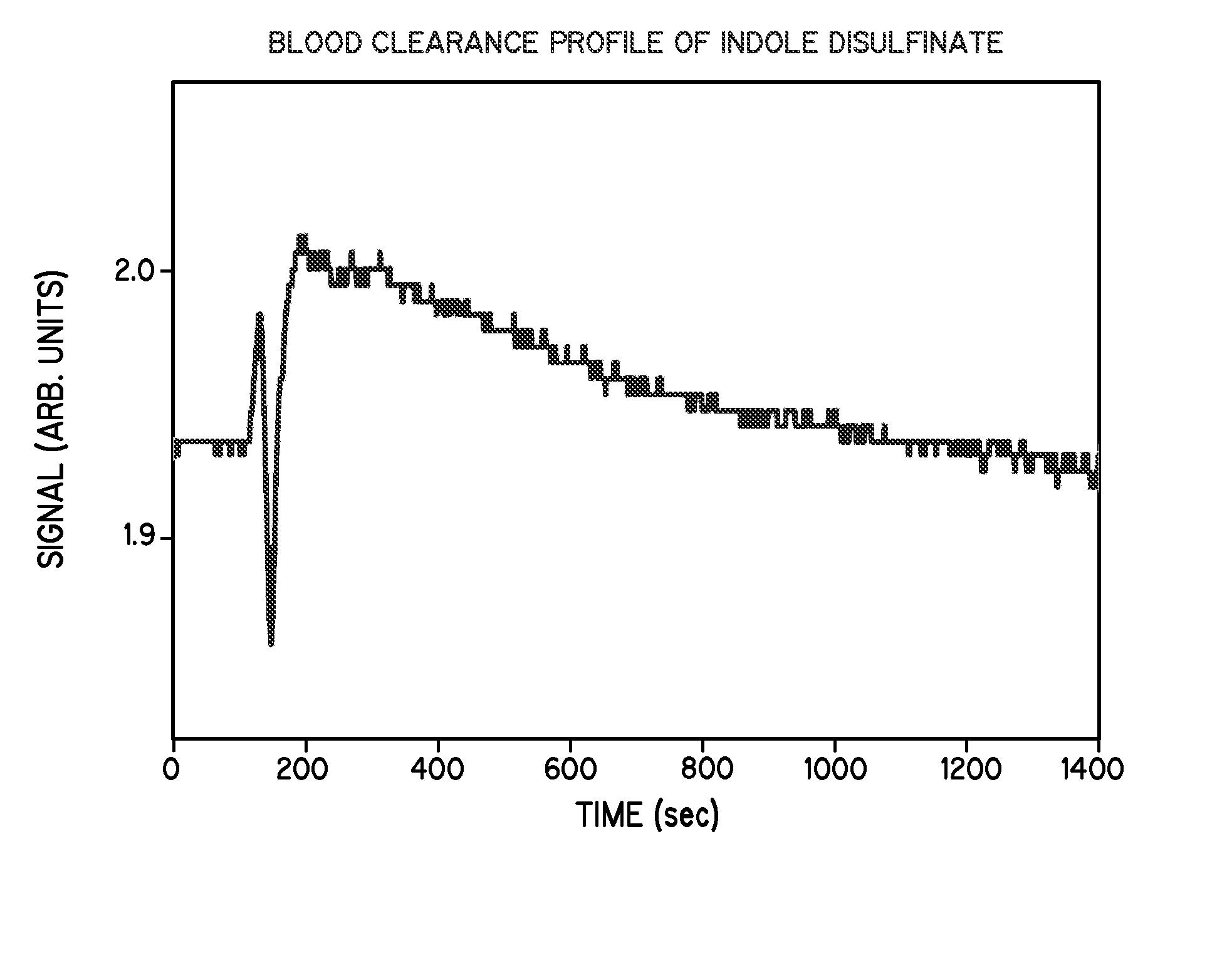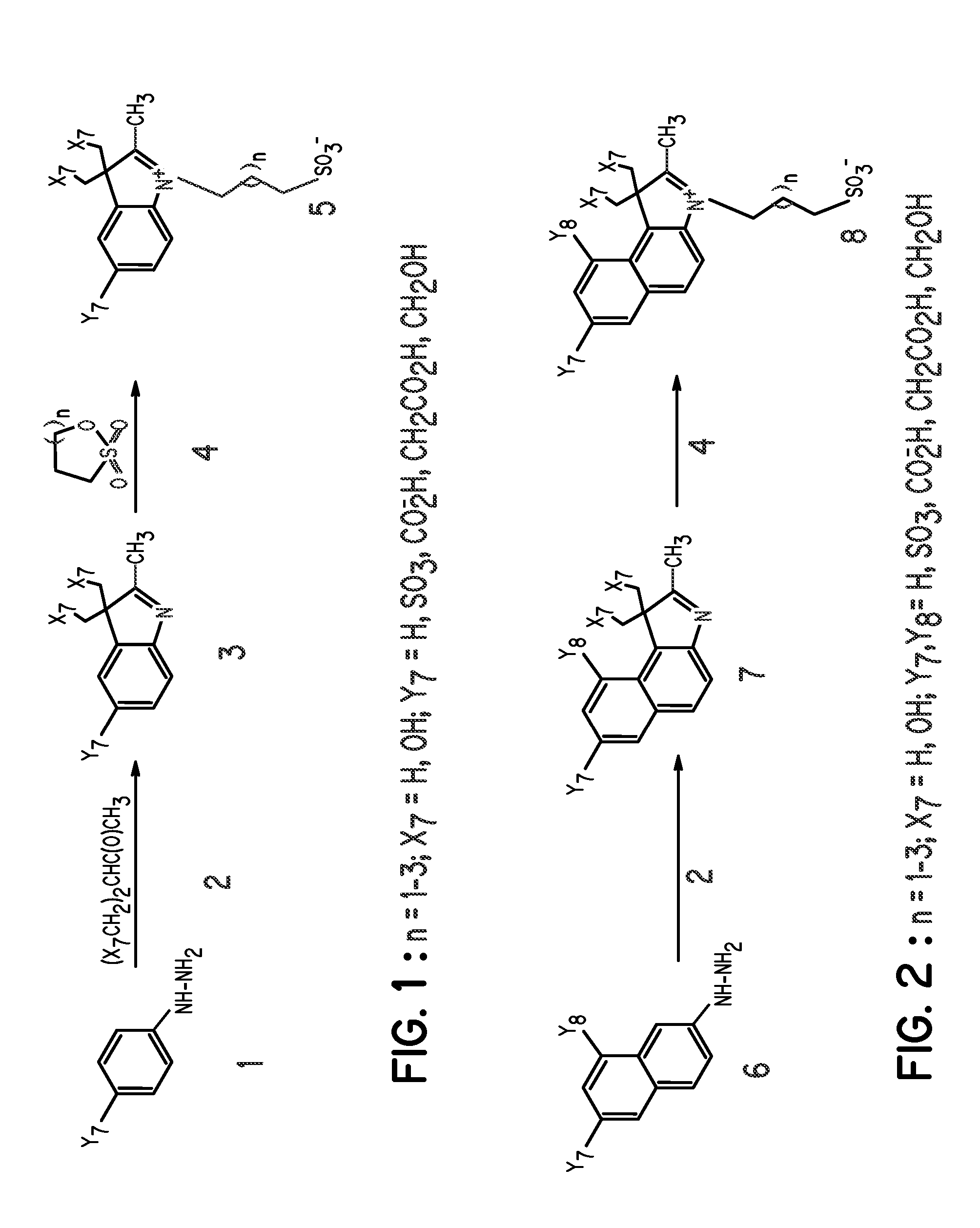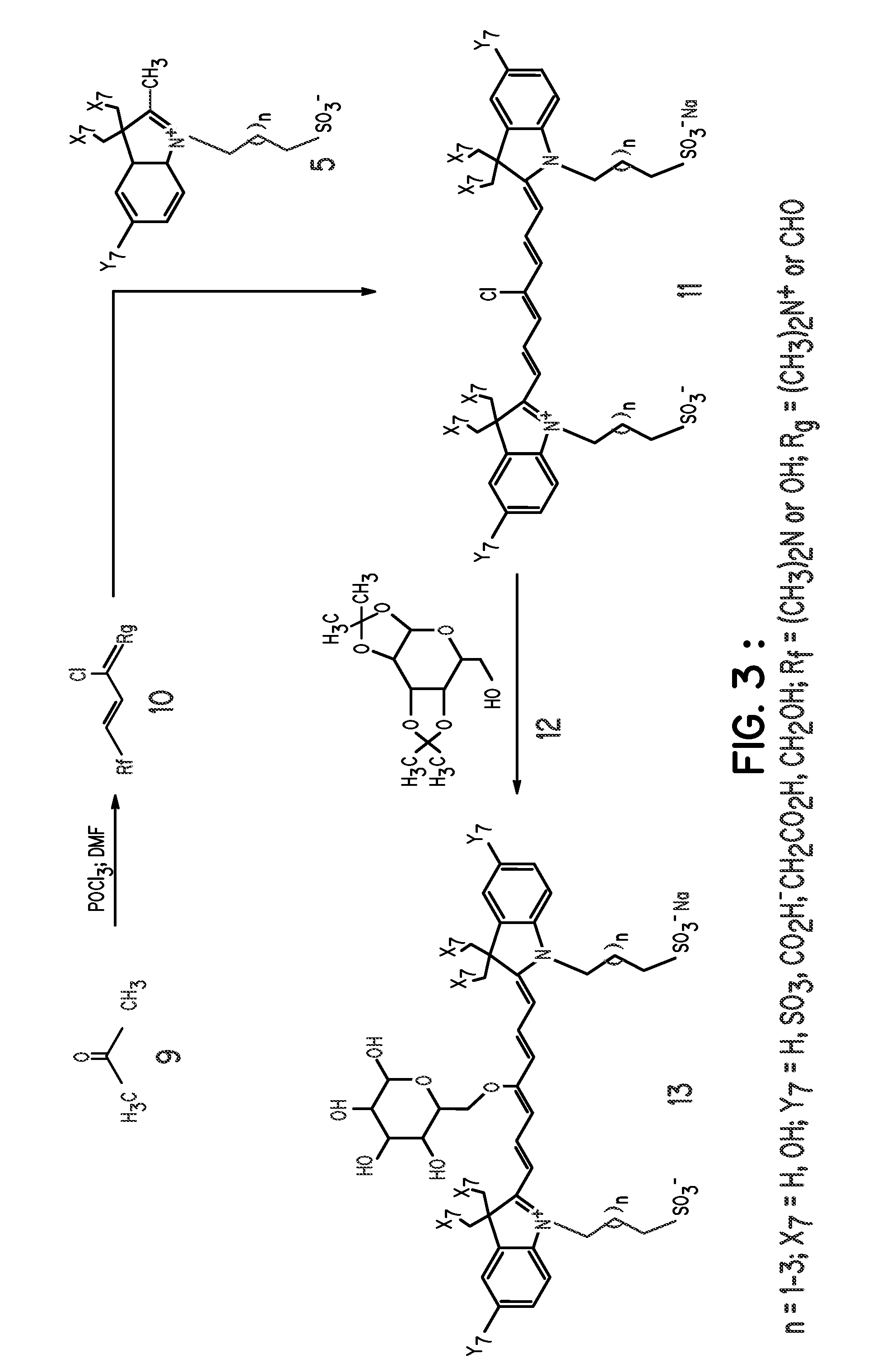Hydrophilic light absorbing compositions for determination of physiological function in critically ill patients
a composition and light absorbing technology, applied in the field of optical probes for physiological function monitoring, can solve the problems of inability to correlate the single value returned several hours after sampling with other important physiologic events, inability to obtain new or repeat data, and inability to accurately predict the effect of the patient's physiological function, so as to achieve simple, efficient and effective monitoring of organ function.
- Summary
- Abstract
- Description
- Claims
- Application Information
AI Technical Summary
Benefits of technology
Problems solved by technology
Method used
Image
Examples
example 1
Synthesis of indole disulfonate
FIG. 1, Compound 5, Y7═SO3−; X7═H; n=1
[0062] A mixture of 3-methyl-2-butanone (25.2 mL), and p-hydrazinobenzenesulfonic acid (15 g) in acetic acid (45 mL) was heated at 110° C. for 3 hours. After reaction, the mixture was allowed to cool to room temperature and ethyl acetate (100 mL) was added to precipitate the product, which was filtered and washed with ethyl acetate (100 mL). The intermediate compound, 2,3,3-trimethylindolenium-5-sulfonate (FIG. 1, compound 3) was obtained as a pink powder in 80% yield. A portion of compound 3 (9.2 g) in methanol (115 mL) was carefully added to a solution of KOH in isopropanol (100 mL). A yellow potassium salt of the sulfonate was obtained in 85% yield after vacuum-drying for 12 hours. A portion of the 2,3,3-trimethylindolenium-5-sulfonate potassium salt (4 g) and 1,3-propanesultone (2.1 g) was heated in dichlorobenzene (40 mL) at 110° C. for 12 hours. The mixture was allowed to cool to room temperature and the re...
example 2
Synthesis of indole disulfonate
FIG. 1, Compound 5, Y7═SO3−, X7═H; n=2
[0064] This compound was prepared by the same procedure described in Example 1, except that 1,4-butanesultone was used in place of 1,3-propanesultone.
example 3
Synthesis of benzoindole disulfonate
FIG. 2, Compound 8, Y7,Y8═SO3−, X7═H; n=2
[0065] This compound was prepared by the same procedure described in Example 1, except that hydrazinonaphthalenedisulfonic acid was used in place of hydrazinobenzenesulfonic acid.
[0066] Other compounds prepared by a similar method include polyhydroxyindoles such as:
PUM
| Property | Measurement | Unit |
|---|---|---|
| wavelength | aaaaa | aaaaa |
| wavelength | aaaaa | aaaaa |
| volumes | aaaaa | aaaaa |
Abstract
Description
Claims
Application Information
 Login to View More
Login to View More - R&D
- Intellectual Property
- Life Sciences
- Materials
- Tech Scout
- Unparalleled Data Quality
- Higher Quality Content
- 60% Fewer Hallucinations
Browse by: Latest US Patents, China's latest patents, Technical Efficacy Thesaurus, Application Domain, Technology Topic, Popular Technical Reports.
© 2025 PatSnap. All rights reserved.Legal|Privacy policy|Modern Slavery Act Transparency Statement|Sitemap|About US| Contact US: help@patsnap.com



